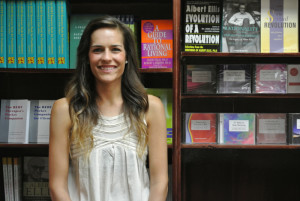by Shannon O’Neill, M.A.
Have you ever heard of the parable about two monks, a woman and the river? Retrieved from https://www.fisheaters.com/twomonks.html, the story is explained below:
Two monks were making a pilgrimage to venerate the relics of a great Saint. During the course of their journey, they came to a river where they met a beautiful young woman — an apparently worldly creature, dressed in expensive finery and with her hair done up in the latest fashion. She was afraid of the current and afraid of ruining her lovely clothing, so asked the brothers if they might carry her across the river.
The younger and more exacting of the brothers was offended at the very idea and turned away with an attitude of disgust. The older brother didn’t hesitate, and quickly picked the woman up on his shoulders, carried her across the river, and set her down on the other side. She thanked him and went on her way, and the brother waded back through the waters.
The monks resumed their walk, the older one in perfect equanimity and enjoying the beautiful countryside, while the younger one grew more and more brooding and distracted, so much so that he could keep his silence no longer and suddenly burst out, “Brother, we are taught to avoid contact with women, and there you were, not just touching a woman, but carrying her on your shoulders!”
The older monk looked at the younger with a loving, pitiful smile and said, “Brother, I set her down on the other side of the river; you are still carrying her.”
This parable can grab the reader’s attention and offer several different forms of insight. One understanding is the younger brother’s unremitting thoughts, which create emotional discord. However, the message I would like to discuss is the separation of one’s behavior from one’s existence. Whatever you concluded about the older brother’s behavior, he eventually set the woman down and continued on his way. He did not “carry” her in his thoughts, believing he was a specific person because of a specific behavior.
It is common for individuals to become upset with themselves because of unpleasant behaviors, strongly believing they are what they do. However, REBT considers behavior to be independent of the individual, as external actions come and go. More specifically, just like past behaviors have not and future behaviors will not, present behaviors do not define you.
When reflecting on mistakes, try not to globalize yourself as a “bad” person. Behaviors are detached from your existence and by refraining from judgment, you can move on from them. Your behaviors are external events that do not exclusively explain you. Rather than labeling yourself through a statement such as, “I am a bad person” remind yourself, “I am a person that may do bad things from time to time, but that behavior does not define me.” Remember, behavior can change in any moment; therefore, be compassionate and consider who you truly are apart from what you do.

